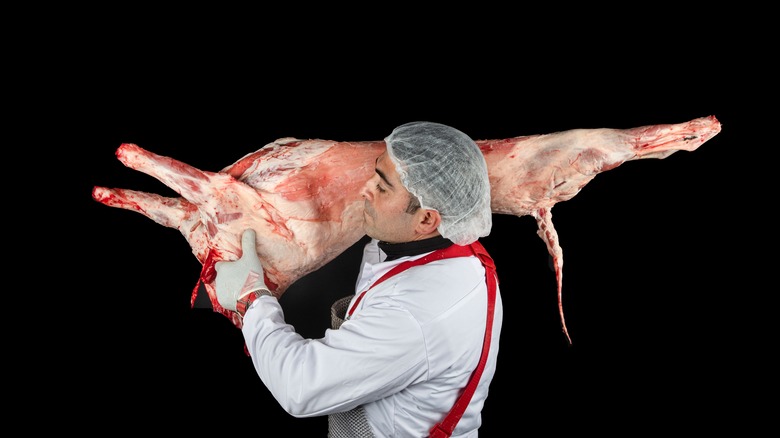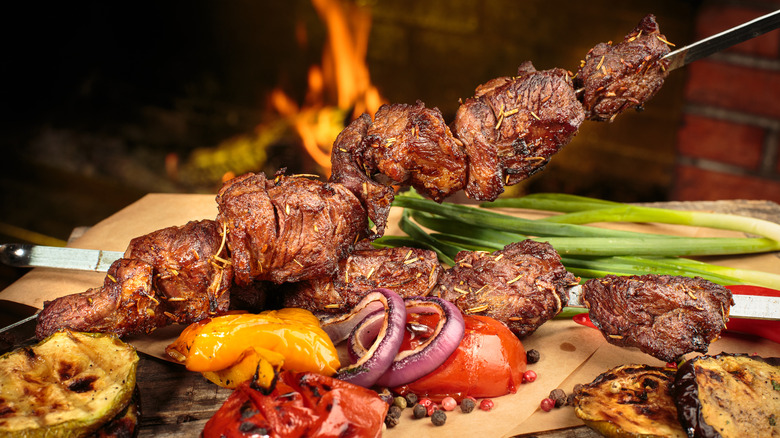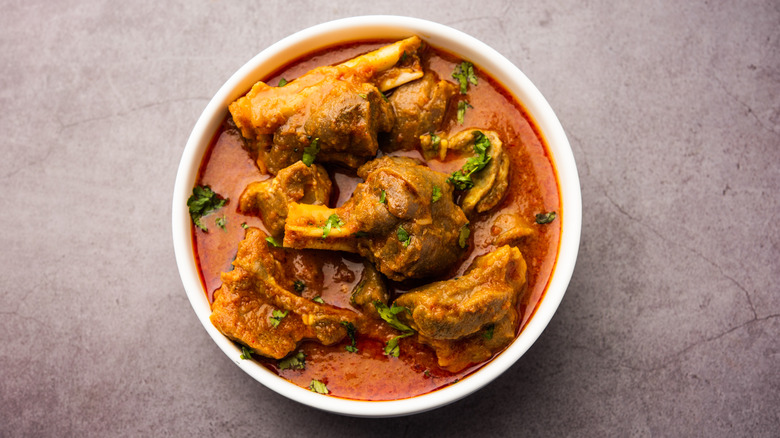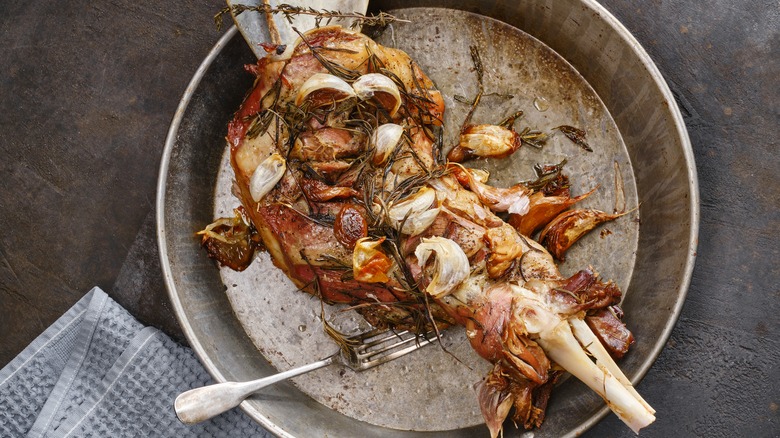Lamb Vs. Mutton: What's The Difference?
Around the world, meat like pork, beef, and various kinds of poultry are commonly enjoyed. Pork is widely consumed in China and chicken is an American favorite (via Statista). But whenever the holidays roll around, whether it be Easter, Passover, or Mawlid an-Nabi, lamb tends to be the preferred cut of meat — that is, unless you're vegetarian or vegan. But why is lamb so widely enjoyed across demographics?
According to the Center for the Advancement of Foodservice Education, sheep have long been used as the primary meat source throughout the Mediterranean and Central Asia and were not seen as dirty (like pork is in some religions) or so holy that they couldn't be used as a food source (like cattle in Hinduism). In addition, many key historical figures revered in today's major religions were shepherds, so sheep products are still integral to many religious holidays and practices today. But here's the deal; lamb and mutton both come from butchered sheep, so what's the difference?
What is lamb?
When it comes to meat, everyone should be pretty familiar with lamb. There are hundreds of recipes for lamb burgers, racks of lamb, pan-seared lamb, lamb souvlaki, braised lamb, traditional Hashweh, and more. Since sheep were successfully domesticated around 9,000 B.C. in what is now modern-day Iraq, they have grown to be extremely popular throughout the Middle East, North Africa, and Southeastern Europe (via The Washington Post). Lamb has been enjoyed by the ancient Mesopotamians, Greeks, Romans, Ottomans, and Indians (those who had not gone vegetarian).
Lamb, specifically, is classified by The Spruce Eats as a sheep that has been butchered before it turns a year old. Lamb is slim in fat and is more tender than a sheep that has been allowed to age longer. According to the World Economic Forum, 500 million sheep are butchered for our consumption annually, but as a globe, we eat more pork, poultry, and beef, than lamb every year. Lamb is rich in high-quality protein, vitamins, minerals, bioactive nutrients, and antioxidants, which are beneficial for a healthy diet, notes Healthline.
What is mutton?
Unlike lamb, mutton is made from older sheep, not old as in "on death's door," but aged over the lamb limit, which is one year. The only true difference between the sheep which make up lamb and the ones that make mutton is their age. The Food Network claims that lambs have more meat with a tender texture, whereas mutton is less so and is tougher and fattier, which means you must cook it longer than lamb before it becomes palatable.
Chef Tariq does say that while it may be harder to handle, mutton has the benefit of a stronger earthy flavor and gaminess. Mutton is also less expensive than lamb, making it a perfect option for those who love the flavor and heartiness of the meat but have trouble affording it. Mutton is especially common in Middle Eastern and South Asian recipes such as mutton curry, mutton stew, and mutton mandi.
Lamb vs. mutton in recipes
When it comes down to deciding whether to use mutton or lamb, you must consider a few things. According to Delighted Cooking, mutton is particularly good in stews and curries because they are slow cooking, requiring that method to become less tough. Mutton can also be roasted, but at a low temperature, and because of mutton's intense flavor, it pairs well with the heavy spices found in Middle Eastern and Indian cuisine, such as Dukkah Nut And Spice Blend or the nine spice mix.
Lamb, on the other hand, is much more tender and easy to cook. American Lamb states that roasting or grilling lamb is a great way to cook a tender lamb and suggests roasting the loin and leg, and grilling burgers, chops, or kebabs because they tend to cook quickly. Shepherd Song Farm claims that if a recipe calls for a long and heavy marinade, it is best to use mutton. Mutton is also recommended if heavy garlic is being called for because it will overwhelm a more delicate tasting lamb. If you are planning on swapping out the lamb for mutton, or vice versa, it is important to adjust the cooking temperatures and duration of time it takes to cook since lamb takes a short amount of time to cook and mutton will become tough if cooked too quickly.



